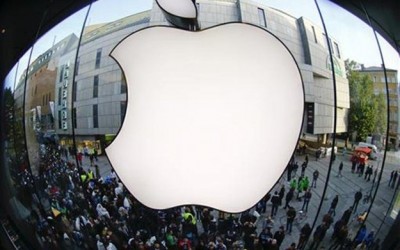iOS Will Surpass Android in Terms Of Market Share By 2015

Different predictions regarding the life of the Apple’s iPhone have appeared on the market, some saying that Apple will lose the share on the market in favor of other devices, such as Android and, even the unexpected Windows Phone.
Even the well-known IDC and Gartner companies came out with unexpected predictions when it comes to iPhone’s evolution in the next years: 2015, 2016 and 2017
If we follow the history of the predictions, the data may come from big name firms, still it might not be relevant. The main reason is the sample which is under a few hundred random people, usually.
The Yankee Group managed to run a survey that gives Apple credits for the next years. The results published by them predict a great future for Apple smartphones, as Android might lose out of every six customers to other phone vendors. So, the only condition for Apple to win over Android in the U.S. market share is that Apple brand loyalty numbers hold up in the next years, so that the results for Apple to position it in top until 2015.
The Yankee ran the survey on 16,000 consumers of smartphones last year and they concluded that there are two key factors that will drive Apple’s ownership past its competition: Apple’s ecosystem loyalty and the reason why people upgrade from feature phones to smartphones.They invoked that while the Apple’s and Android’s ecosystem is about the same, the platform loyalty is not. Provided Apple will address the low-end smart phone buyers in the increasing markets, with the waited device, the budget iPhone, the curb will be even more ascendant for the company.
AllThingsD confirms the Yankee Group predictions saying that even though the launching of the Galaxy S4 at the Radio City Music Hall was a success, the consumer buying data shows that Apple is increasing the market share, the website being convinced of the a great difference between the two competitors in the near future.
According to the same source, the iPhone seems to have a “halo effect” for the consumer. The ecosystem of Apple has subscribers that never leave, while the Android users seem to leave the company for other manufacturers. The rate is one out of every six customers. The trends suggest Apple’s ownership of the category by 2015, and, also, suggest a great rise in tablets market for the same producer.
As figured in the survey conducted by the Yankee Group in 2013, March, Apple’s Share is forecast to grow; in accordance a USB Research Survey conducted in September 2012 showed that the percentage of the iPhone users who would never buy another brand of smart phone is high: nine out of ten.
What Yankee did was compare the two ecosystems – Apple vs Android – with two buckets of water, concluding that if Apple is good, Android bucket leaks badly. It seems that the new smart phone buyers help the two brands share the percentage of the consumers, by the two buckets. Figures show that the number of people choosing Windows Phone and BlackBerry buckets is lower than the last years. Still, those who choose the Android bucket will see that it leaks as one in five of all the owners are lost. On the other hand, the Apple bucket leaks only about seven percent of the contents, so the customers don’t leave. Also, what is good to know is that the Apple bucket has the premise of filling up faster and higher than the Android one, even if the Apple bucket had fewer owners at the beginning.
To be more concrete, nine percent of Apple owners plan to switch to another platform when they buy the next device while 24 percent of the present Android owners plan to switch to another platform. Eighteen percent out of a total of 24 intend to switch to Apple, the rest dividing between Samsung, HTC, Rimm and only a small percentage to Nokia
When it comes to the Retention to a specific brand, the UBS conducted a survey which concluded that Apple’s iPhone had almost 89 percent retention rate in September 2012, while the HTC phones, the second in the top, managed to have 39 percent. Also, what is interesting is that Apple claimed a 50 percent retention rate lead over all the other producers,based on the customer loyalty
Another interesting observation coming from the Yankee Group is that the iPhone intent to buy is statistically tied with the intent to buy the Android phones, all combined. More specifically, the intention to buy Samsung devices is less than half the iPhones, of course the data being valid in U.S.
Still, as the market does not trust in this type of research, we will not conclude anything. Only time will tell which will be the manufacturer which will win over its competitors and how.
Meanwhile, stay tuned on our website and social media (Facebook, Google +, Twitter) in order to see the latest news on iOS matters. See you there!











